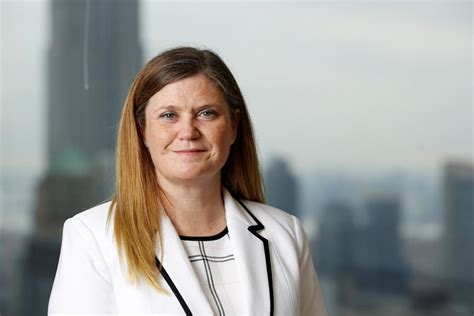A Quote by Alan Greenspan
I believe that the general growth in large [financial] institutions have occurred in the context of an underlying structure of markets in which many of the larger risks are dramatically -- I should say, fully -- hedged.
Related Quotes
The trouble is that the risks that are being hedged very well by new financial securities are financial risks. And it appears to me that the real things you want to hedge are real risks, for example, risks in innovation. The fact is that you'd like companies to be able to take bigger chances. Presumably one obstacle to successful R&D, particularly when the costs are large, are the risks involved.
To restore confidence in our markets and our financial institutions so they can fuel continued growth and prosperity, we must address the underlying problem. The federal government must implement a program to remove these illiquid assets that are weighing down our financial institutions and threatening our economy.
By any measure, CapitalSource outperformed both our direct competitors and the financial services industry in general, particularly in the context of the near collapse of the financial services industry where 19 of the 20 largest financial institutions in the country either failed or were bailed out by the government.
When large companies take on risk, then they impose risks on the rest of the system. And these are systemic risks and these systemic risks we never used to think were really that important, but as soon as we recognize how the financial sector - the risks the financial sector takes on can impact the entire global economy, we realize that those risks needed to be controlled for the social good.
The single greatest line I ever wrote as an analyst was after Lomas said they were hedged: 'The Lomas Financial Corporation is a perfectly hedged financial institution: it loses money in every conceivable interest rate environment.' I enjoyed writing that sentence more than any sentence I ever wrote.
In the financial markets, however, the connection between a marketable security and the underlying business is not as clear-cut. For investors in a marketable security the gain or loss associated with the various outcomes is not totally inherent in the underlying business; it also depends on the price paid, which is established by the marketplace. The view that risk is dependent on both the nature of investments and on their market price is very different from that described by beta.
Congressman Frank and Senator Dodd wanted the government to push financial institutions to lend to people they would not lend to otherwise, because of the risk of default. ... The idea that politicians can assess risks better than people who have spent their whole careers assessing risks should have been so obviously absurd that no one would take it seriously.



































